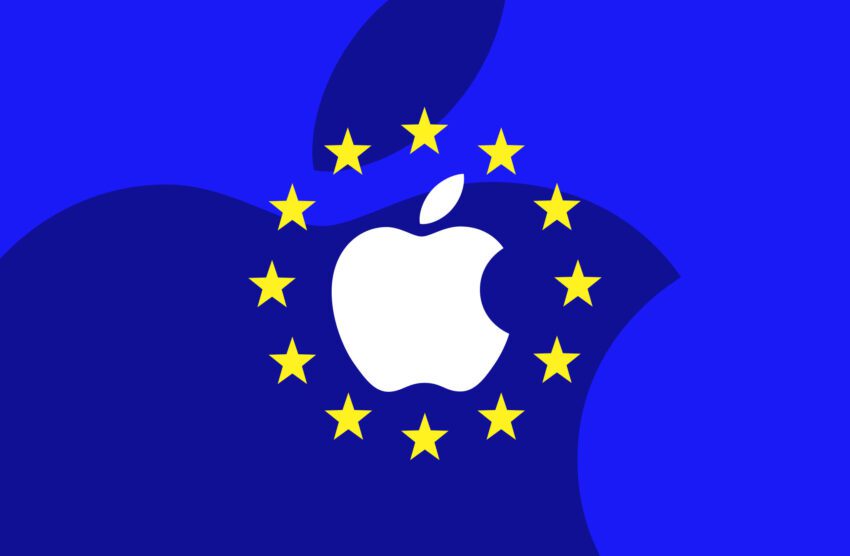
apple warns of more feature delays in Apple has announced delays in rolling out certain product features in Europe due to challenges in complying with the EU’s Digital Markets Act (DMA).
apple warns of more feature delays in
Understanding the Digital Markets Act
The Digital Markets Act, enacted by the European Union, aims to create a fairer digital marketplace by regulating large tech companies, often referred to as “gatekeepers.” These regulations are designed to ensure that dominant platforms do not abuse their market power and that consumers have more choices and better access to services. The DMA mandates that companies like Apple must allow interoperability with third-party devices and applications, which includes making proprietary features accessible to non-Apple hardware.
As part of this initiative, the DMA requires that companies facilitate easier pairing, data transfer, and notification sharing between their devices and third-party products. This is intended to foster competition and innovation within the tech ecosystem, allowing users to benefit from a broader range of services and products.
Apple’s Compliance Challenges
In a statement released on Wednesday, Apple expressed its concerns regarding the DMA, stating that the legislation has introduced “more complexity and more risks for our EU users.” The company is particularly troubled by the requirement to open its proprietary features to third-party devices, which it claims poses significant challenges in maintaining user data security and privacy.
Features Affected by Delays
Several key features are currently facing delays due to these compliance issues:
- AI-Powered Live Translation for AirPods: This feature aims to provide real-time translation during conversations, enhancing communication for users across different languages.
- iPhone Mirroring: This functionality allows users to mirror their iPhone screens on other devices, facilitating presentations and media sharing.
- Visited Places and Preferred Routes on Apple Maps: This feature would enhance navigation by allowing users to save frequently visited locations and preferred routes for easier access.
Apple has indicated that it has not yet found a viable way to implement these features on non-Apple devices without compromising the security and privacy of its users. This has led to a growing list of delayed features, which Apple warns may continue to expand as it navigates the complexities of the DMA.
Progress Amidst Challenges
Despite its ongoing opposition to the DMA, Apple has made some strides in adapting to the new regulatory environment. The latest beta version of iOS 26.1 suggests that Apple is working on a “notification forwarding” feature. This would allow notifications from iPhones to appear on non-Apple devices, such as competing smartwatches. Additionally, the beta includes references to enhancements that would simplify the pairing process between iPhones and third-party accessories.
These developments indicate that while Apple is facing significant hurdles, it is also making efforts to comply with certain aspects of the DMA. The company has stated that it is “spending thousands of hours” to ensure compliance with the law’s requirements, highlighting its commitment to addressing the regulatory landscape in Europe.
Implications of Delays
The delays in feature rollouts could have several implications for Apple and its users in Europe. First and foremost, the inability to deliver these features may frustrate consumers who expect a seamless experience across devices. As competition in the tech industry intensifies, users may seek alternatives that offer the functionalities they desire without the constraints imposed by regulatory compliance.
Moreover, the EU has set a deadline for Apple to comply with the DMA by the end of this year. Failure to meet this deadline could result in additional fines, compounding the financial penalties the company has already faced. In April, Apple was hit with a $580 million penalty for violating anti-steering requirements under the DMA, underscoring the financial risks associated with non-compliance.
Apple’s Stance on the DMA
Apple has been vocal in its opposition to the DMA, calling for the regulation to be repealed. The company argues that the DMA is not a suitable legislative framework for addressing the complexities of the digital marketplace. In a feedback submission reviewed by the Financial Times, Apple suggested that a “more appropriate fit for purpose legislative instrument” should be put in place instead.
While Apple’s concerns about user security and privacy may be valid, it is also clear that the company has a vested interest in maintaining the integrity of its ecosystem. The walled garden approach that Apple has cultivated incentivizes consumers to remain within its product ecosystem, where they can enjoy a seamless experience across devices and services. By denying European users access to certain features due to compliance issues, Apple may be attempting to retain its user base while navigating its ongoing conflict with the EU.
Stakeholder Reactions
The reactions to Apple’s announcement have been mixed. Consumer advocacy groups have expressed concern that the delays could limit user choice and access to innovative features. They argue that the DMA is essential for fostering competition and ensuring that consumers are not locked into a single ecosystem.
On the other hand, some industry analysts have pointed out that Apple’s challenges in complying with the DMA highlight the complexities of regulating large tech companies. They argue that while the DMA aims to create a fairer marketplace, the implementation of such regulations can be fraught with difficulties, particularly for companies with established ecosystems like Apple.
The Future of Apple’s Features in Europe
As Apple navigates the challenges posed by the DMA, the future of its features in Europe remains uncertain. The company faces a delicate balancing act: it must comply with regulatory requirements while also ensuring that it does not compromise user security and privacy. The outcome of this situation could have far-reaching implications for Apple’s operations in Europe and its relationship with regulators.
In the coming months, Apple will need to demonstrate its commitment to compliance by delivering on the features that European users expect. The company’s ability to adapt to the DMA will likely be closely monitored by both consumers and regulators, as it sets a precedent for how tech companies navigate similar regulatory landscapes in the future.
Conclusion
Apple’s announcement of delays in feature rollouts due to compliance challenges with the EU’s Digital Markets Act underscores the complexities of navigating regulatory frameworks in the tech industry. While the DMA aims to foster competition and innovation, it also presents significant hurdles for companies like Apple, which must balance compliance with user security and privacy. As the deadline for compliance approaches, the tech giant faces mounting pressure to deliver on its promises to European users, all while advocating for a legislative framework that better suits its business model.
Source: Original report
Was this helpful?
Last Modified: September 25, 2025 at 3:36 pm
6 views















